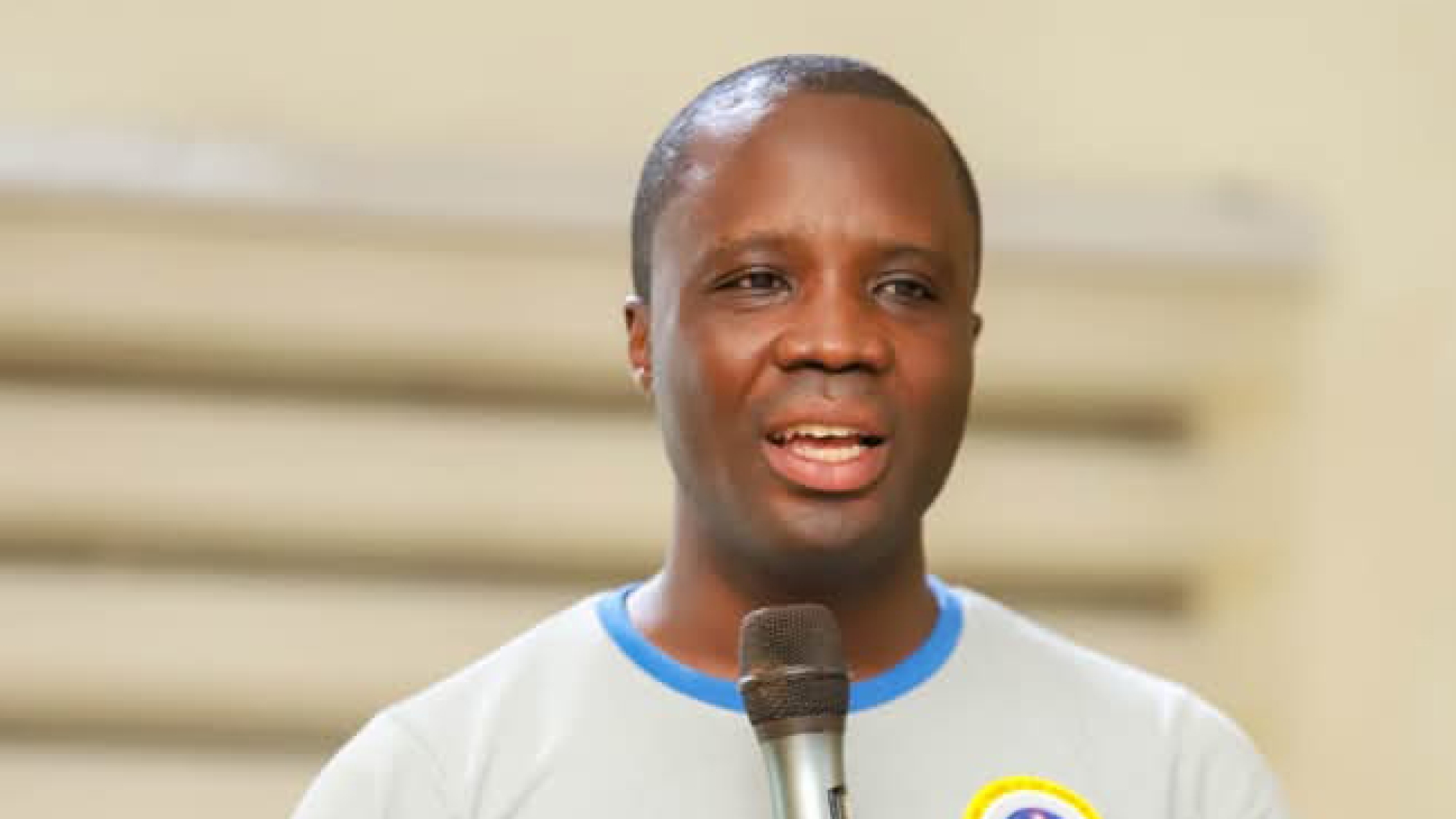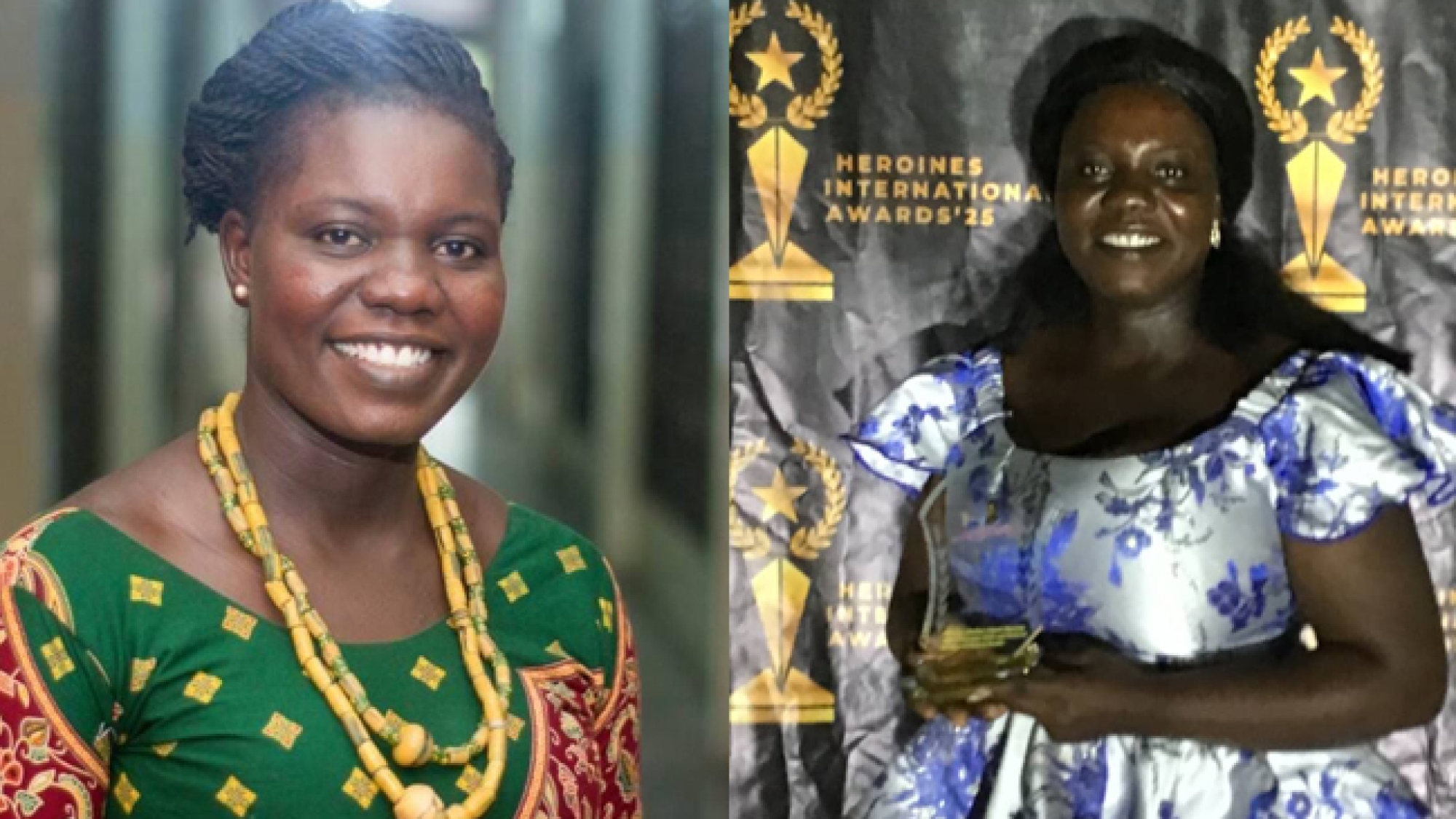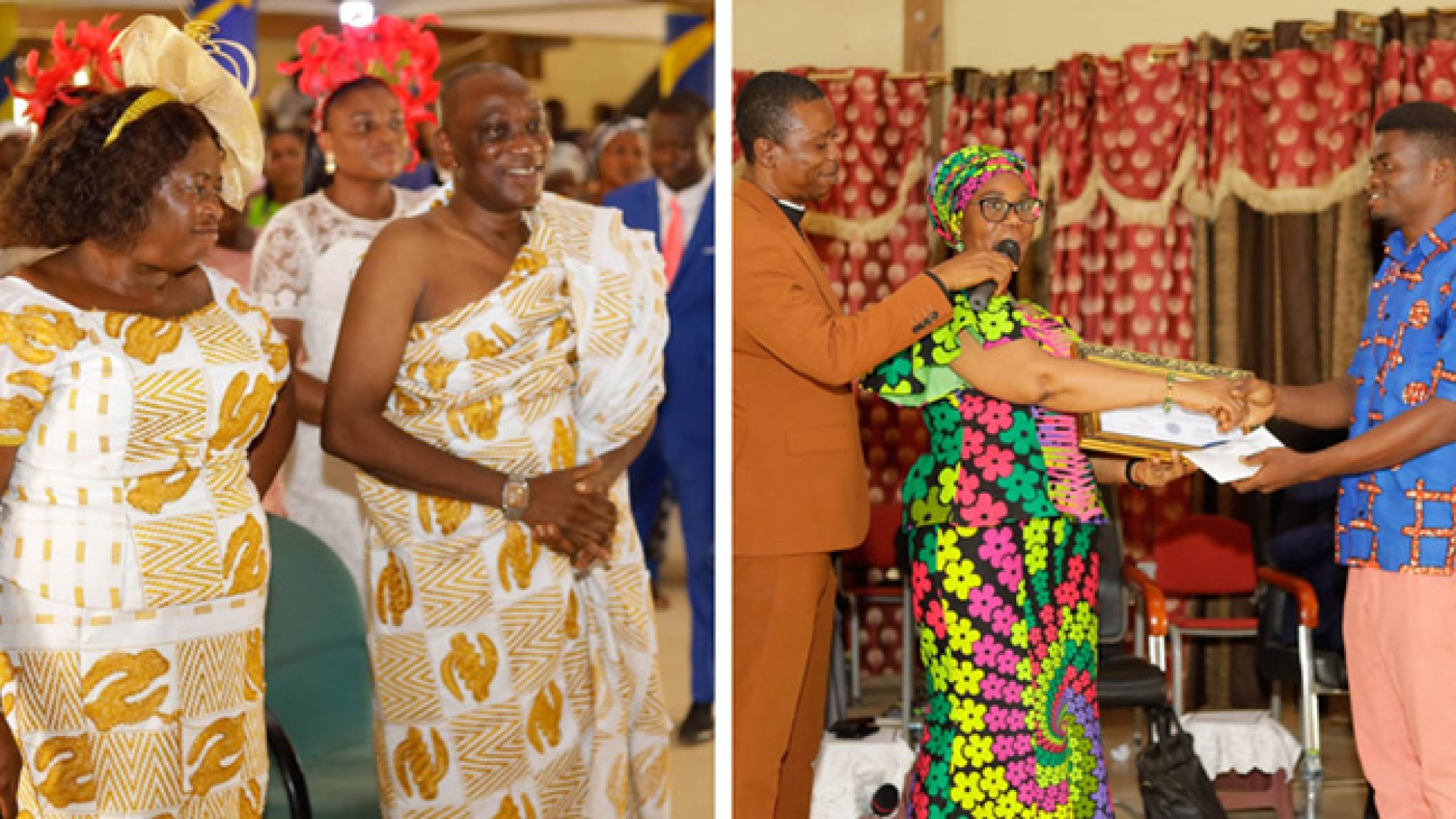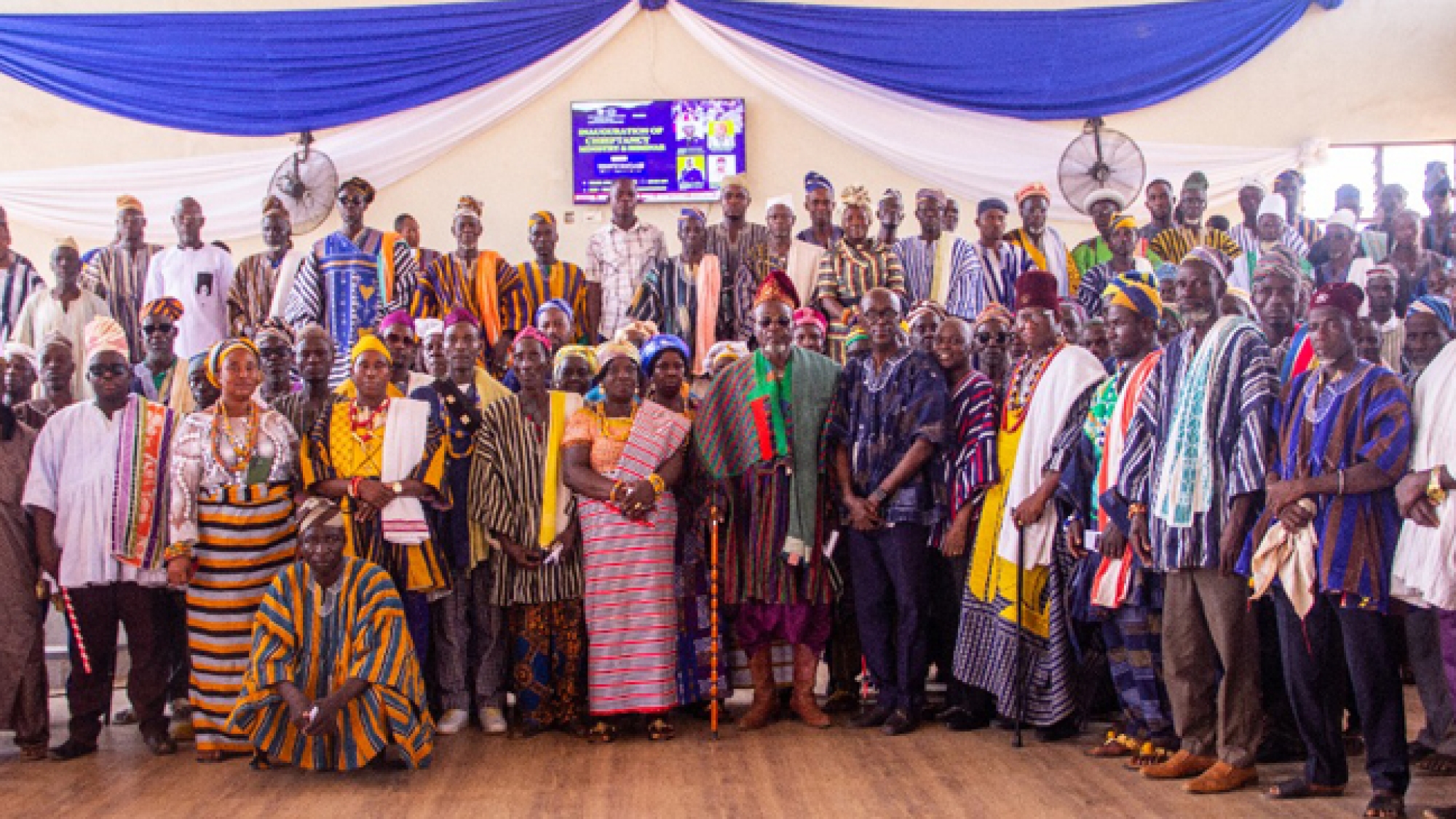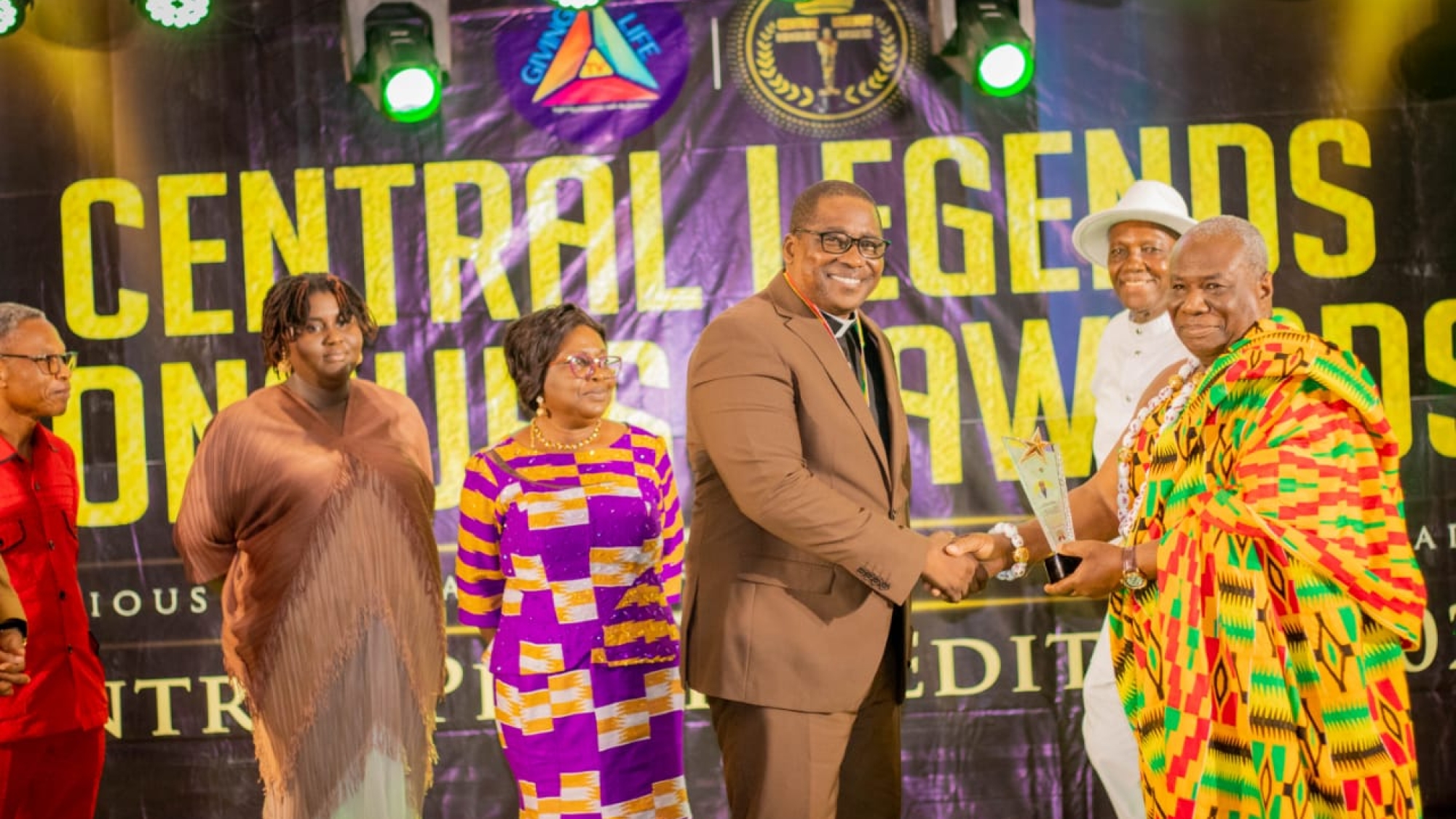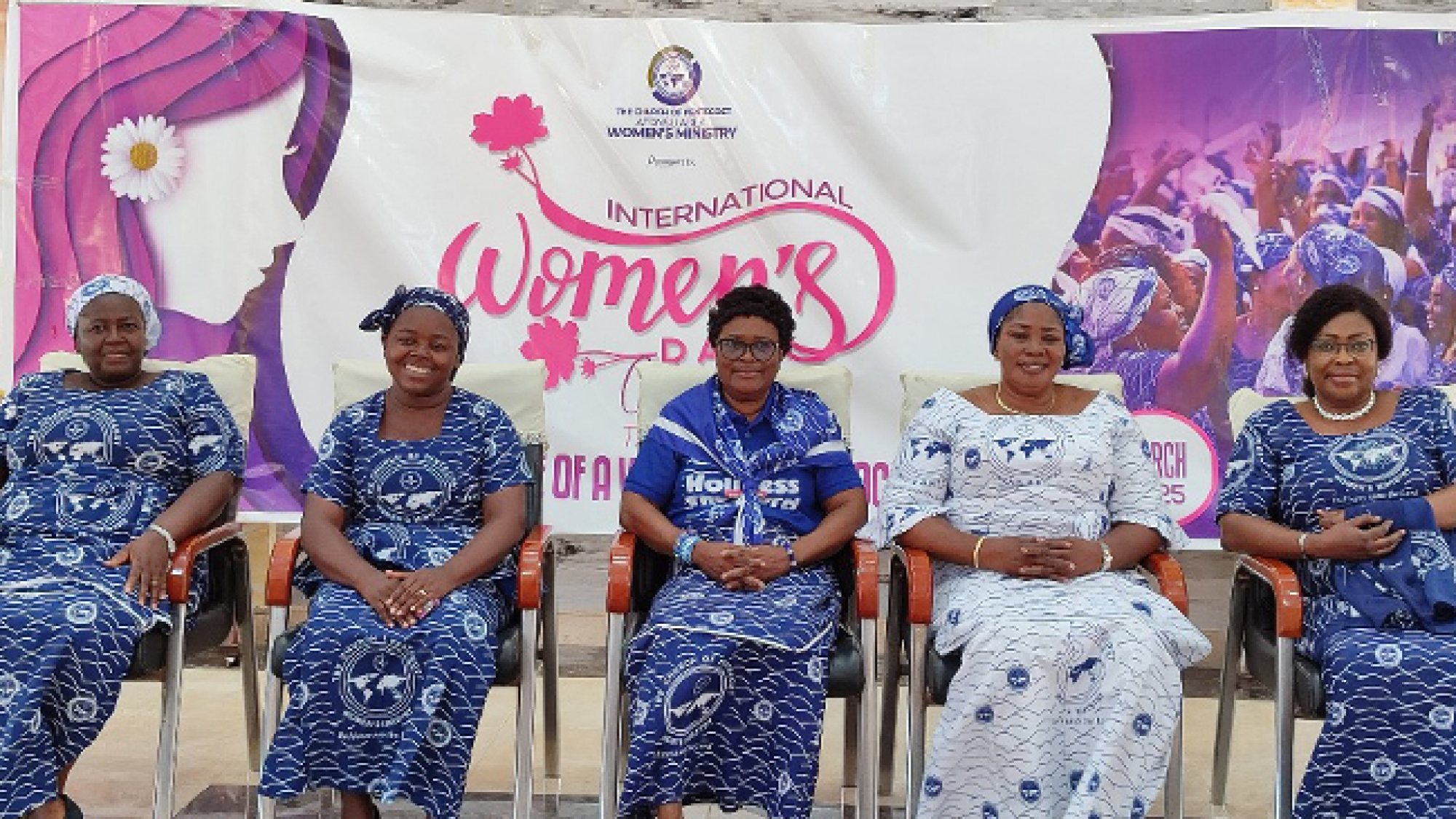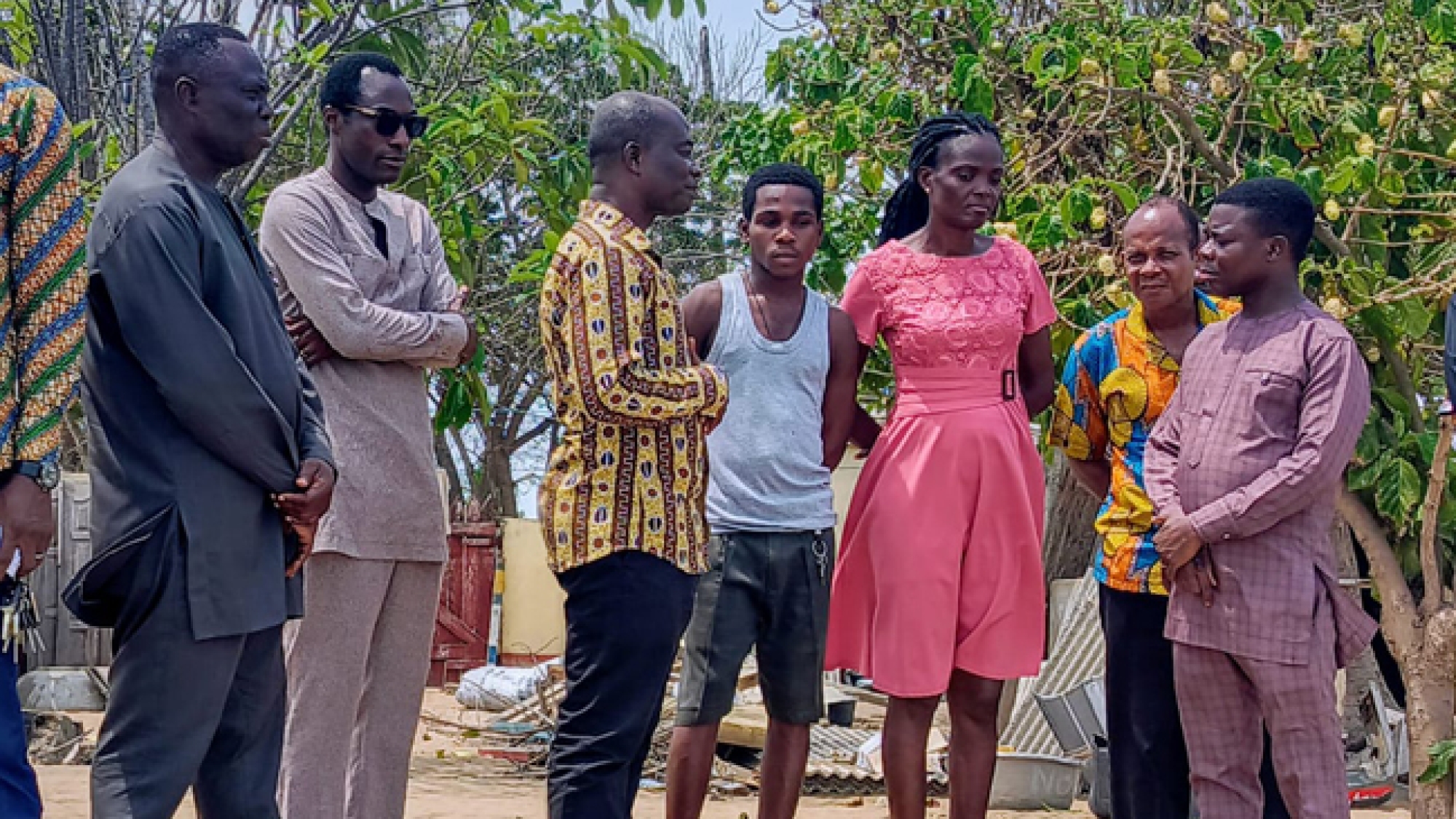The Yendi Area of The Church of Pentecost, under the leadership of the Area Head, Pastor James Magyam, has held an inauguration ceremony for the Chieftaincy Ministry, alongside a seminar for ministers and their wives, royals, and coordinators of the Chieftaincy Ministry in the Area.
This glamorous occasion, chaired by the National Coordinator of the Chieftaincy Ministry, Apostle Vincent Anane Denteh, and his team, took place on Thursday, 6th March 2025, at the Yendi Central Assembly auditorium.
In his sermon titled “The Sacredness of Royal Leadership,” with scriptural references from Proverbs 16:10-15, Psalm 103:19, and 1 Timothy 1:17, Apostle Vincent Anane Denteh stated that kingship is ordained by God; therefore, it is God Himself who appoints leaders to rule over His people.
Expounding further on Proverbs 16:10-15, the veteran Apostle, who also serves as the Director for the Pentecost Men’s Ministry (PEMEM), emphasised that a chief must know and govern his people based on the truth, principles, and precepts of God’s word. He explained that the delight of a king is in righteous counsel because “a throne is established through righteousness” (Proverbs 16:13). Therefore, kings must endeavor to eschew evil and pursue righteousness in their leadership.
Addressing the chiefs and royals, the revered Apostle reiterated that God is the greatest King of all, and as the King of kings, He demands our worship and expects leaders to rule in a manner that reflects His glory.
Apostle Anane Denteh also touched on some legal aspects of the Chieftaincy institution in Ghana. He explained that page 22 of the Ghanaian Constitution (Article 270) outlines the establishment and entrenchment of the Chieftaincy institution, while the Chieftaincy Act (2008), Act 759, highlights the expected behaviour and conduct of chiefs in Ghana. He encouraged the chiefs present to make a conscious effort to study these laws to become law-abiding royals who honor both God and country.
Concluding his message, Apostle Anane Denteh emphasised the possibility of Christians becoming successful chiefs by ruling with the principles and values of the Kingdom of God. He urged the audience not to label chiefs as idol worshippers but rather as God’s agents of transformation in various cultures and societies.
The primary aim of the Chieftaincy Ministry is to bridge the gap between the palace and the church. This connection serves as a strategic leverage point for sharing the gospel of our Lord Jesus Christ, with the hope of winning royals for Christ. Additionally, the ministry is responsible for holding chaplaincy services in palaces and engaging in other collaborative activities that contribute to nation-building and community development.
The memorable occasion also saw the inauguration of the Yendi Area Chieftaincy Ministry, during which a seven-member Area Executive Committee was mandated to lead the Church’s vision of “Possessing the Nations” through “Possessing the Palace.” The committee comprises Elder Chief Emmanuel Kojo Nagbeja (Chairman), Pastor Eyram Dzotepeh-Napoleon (Area Coordinator), Elder Obed Marboukim (Secretary), and Queen Mother Naomi Kundeku (Member). Other committee members include Elders Morgan Agor, Emmanuel Mboranen, and Peter Jagri.
Apostle Anane Denteh commended the Yendi Area Head and the Area Chieftaincy Coordinator for their outstanding efforts and flawless organisation of the fruitful event.
In all, 322 royals—including Paramount Chiefs, Divisional Chiefs, Queen Mothers, Sub-Chiefs, and other traditional leaders—from the Dagomba, Kokomba, Chokosi, Bimoba, Bassare, and Fulani ethnic groups within the Yendi Area were in attendance.
Report by Yendi Area Media Team





